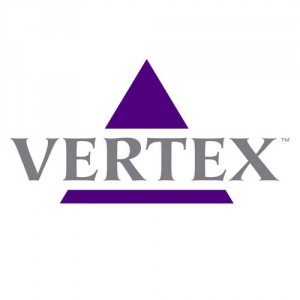Recent Cystic Fibrosis Research on Vertex’s Kalydeco Disappoints Investors

 Vertex Pharmaceuticals Inc. recently presented preliminary study results of FDA-approved Kalydeco for the treatment of cystic fibrosis (CF) in combination with an investigational drug. Despite the fact that the combined therapy helped improve breathing in CF patients, the outcomes were less significant than expected by analysts, which disappointed investors.
Vertex Pharmaceuticals Inc. recently presented preliminary study results of FDA-approved Kalydeco for the treatment of cystic fibrosis (CF) in combination with an investigational drug. Despite the fact that the combined therapy helped improve breathing in CF patients, the outcomes were less significant than expected by analysts, which disappointed investors.
Vertex conducted a phase 2 randomized, double-blind, placebo-controlled study that administered VX-661 and Kalydeco for four weeks to 39 CF patients, which improved the amount of air exhaled in a second in 4.4 pp, a measurement used to assess pulmonary function. However, 12 weeks after the initiation of the treatment, the increase fell to only 3 pp, as announced by the company.
Safety was the primary endpoint of the study and the results revealed good toleration after the treatment. The adverse events most typically reported were pulmonary exacerbation, which occurred in 38% of the cases, and cough, which occurred in 33% of the patients. “The safety and efficacy data from this study are consistent with prior Phase 2 studies of VX-661 in combination with ivacaftor and provide further support for our ongoing Phase 3 program in people with one or two copies of the F508del mutation,” said the executive vice president and chief medical officer at Vertex, Jeffrey Chodakewitz, MD.
[adrotate group=”1″]
Kalydeco is approved for the treatment of CF patients with a specific genetic mutation, which includes only 5% of the total patients. The drug works by helping proteins move through the cell membrane. This is a key mechanism of action, since little to no CFTR protein reaches the cell surface in CF patients who have two copies of the most common mutation in the CFTR gene, F508del. The company believes that VX-661 would complement Kalydeco by moving the proteins into the right place, increasing the number of patients who could benefit from receiving the drug, as well as their quality of life.
Despite the increase in lung function and safety results, the improvement expected was at least 6 pp, according to Bloomberg, which disappointed investors, leading to a 4% drop of the company’s share price after the data was released. Vertex, however, will continue the studies and initiate a phase 3 study program to evaluate VX-661 and Kalydeco in CF patients, including in patients with two copies of the F508del mutation. The company began enrolling patients in February.
In addition, Kalydeco is also being evaluated in a deuterium-modified version by Concert Pharmaceuticals Inc, in a phase 1 trial focused on the crossover assessment to compare two different proprietary deuterium-modified compounds with the goal of choosing one for future clinical development and evaluation. The Phase 1 study includes both single- and multiple-ascending doses so that it can be evaluated in terms of safety and pharmacokinetics profiles of the chosen candidate.







